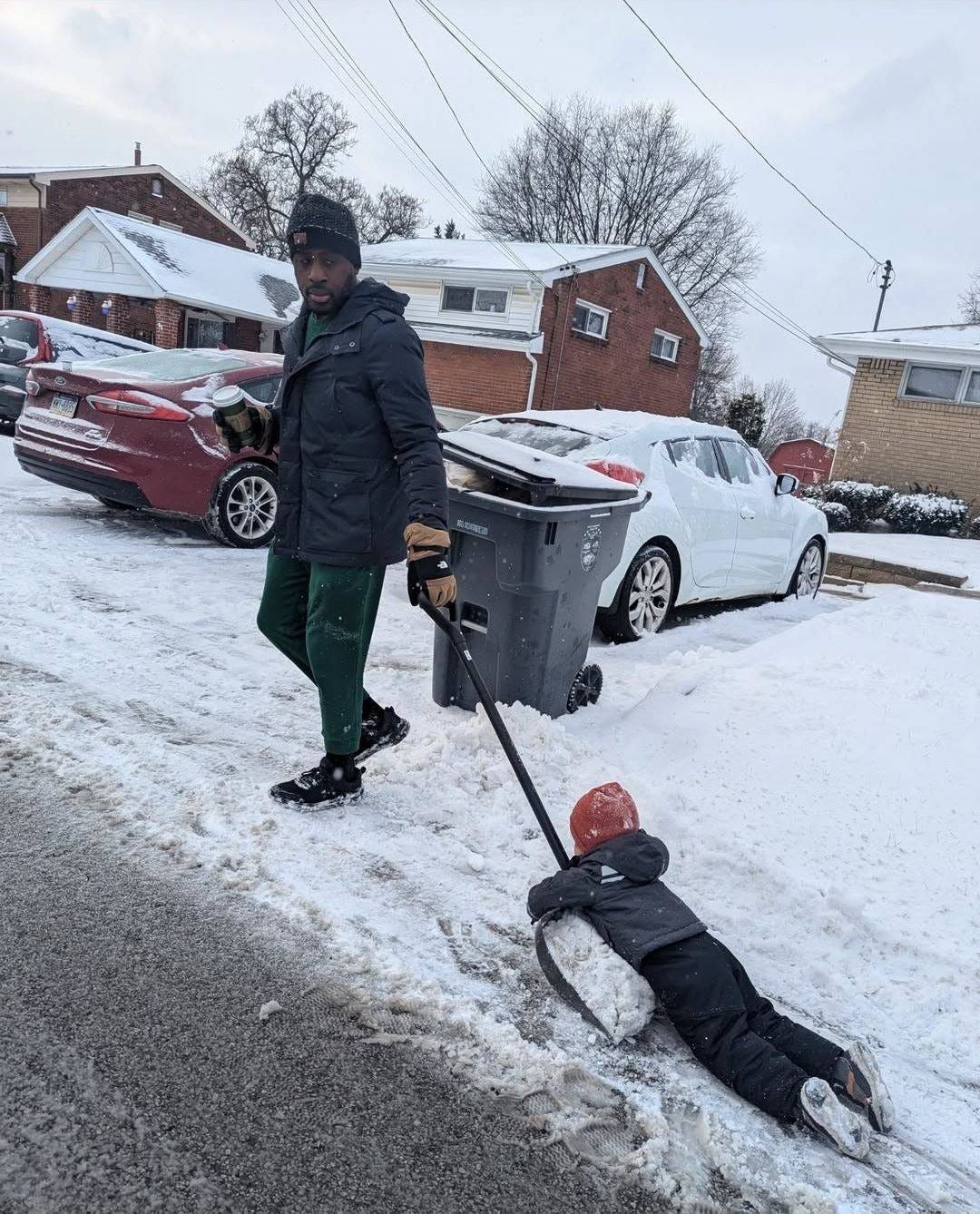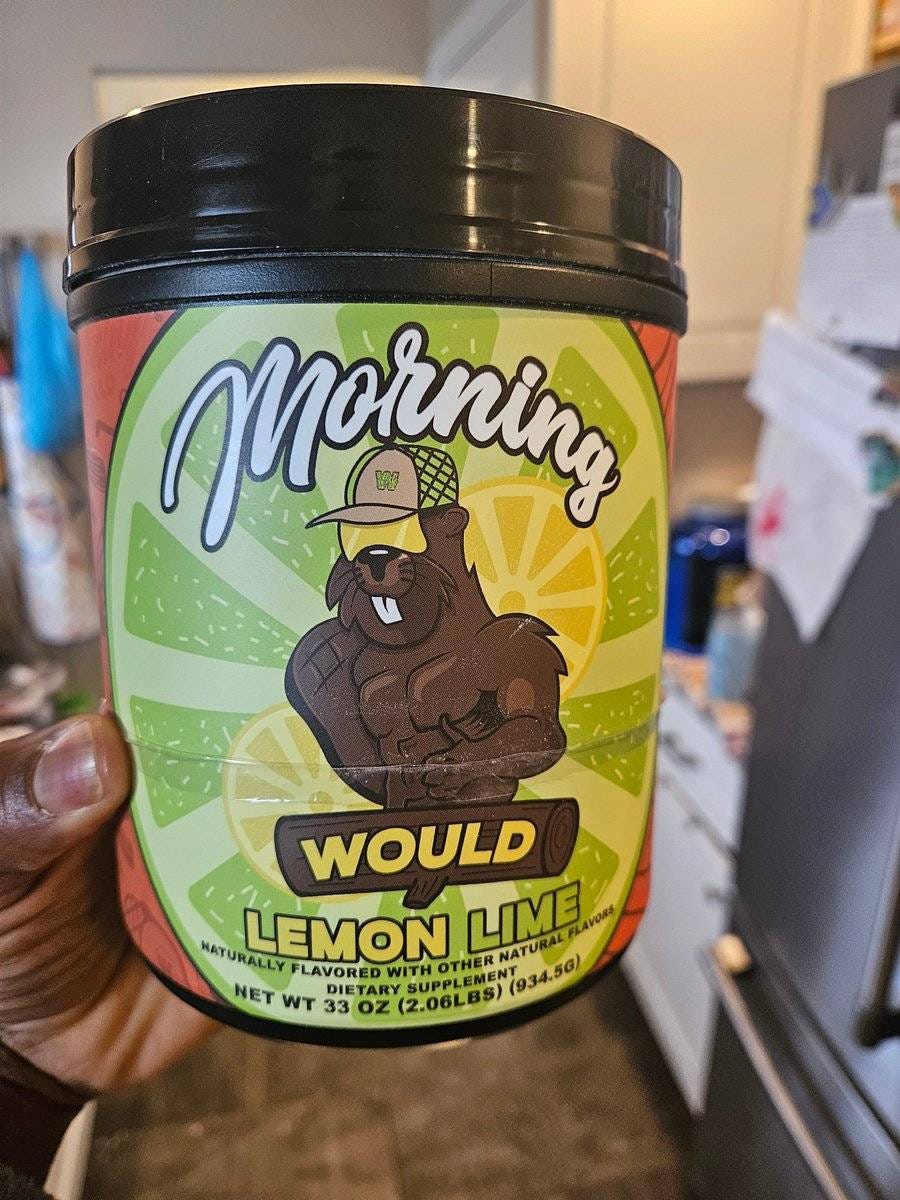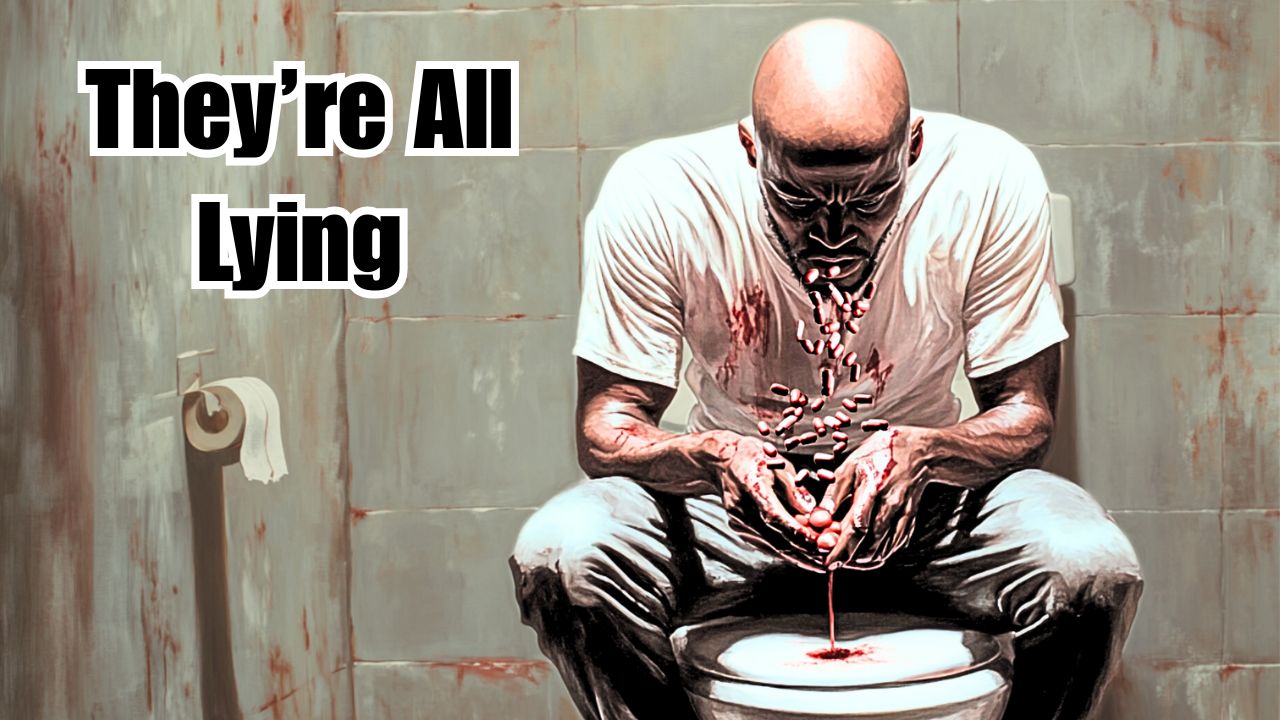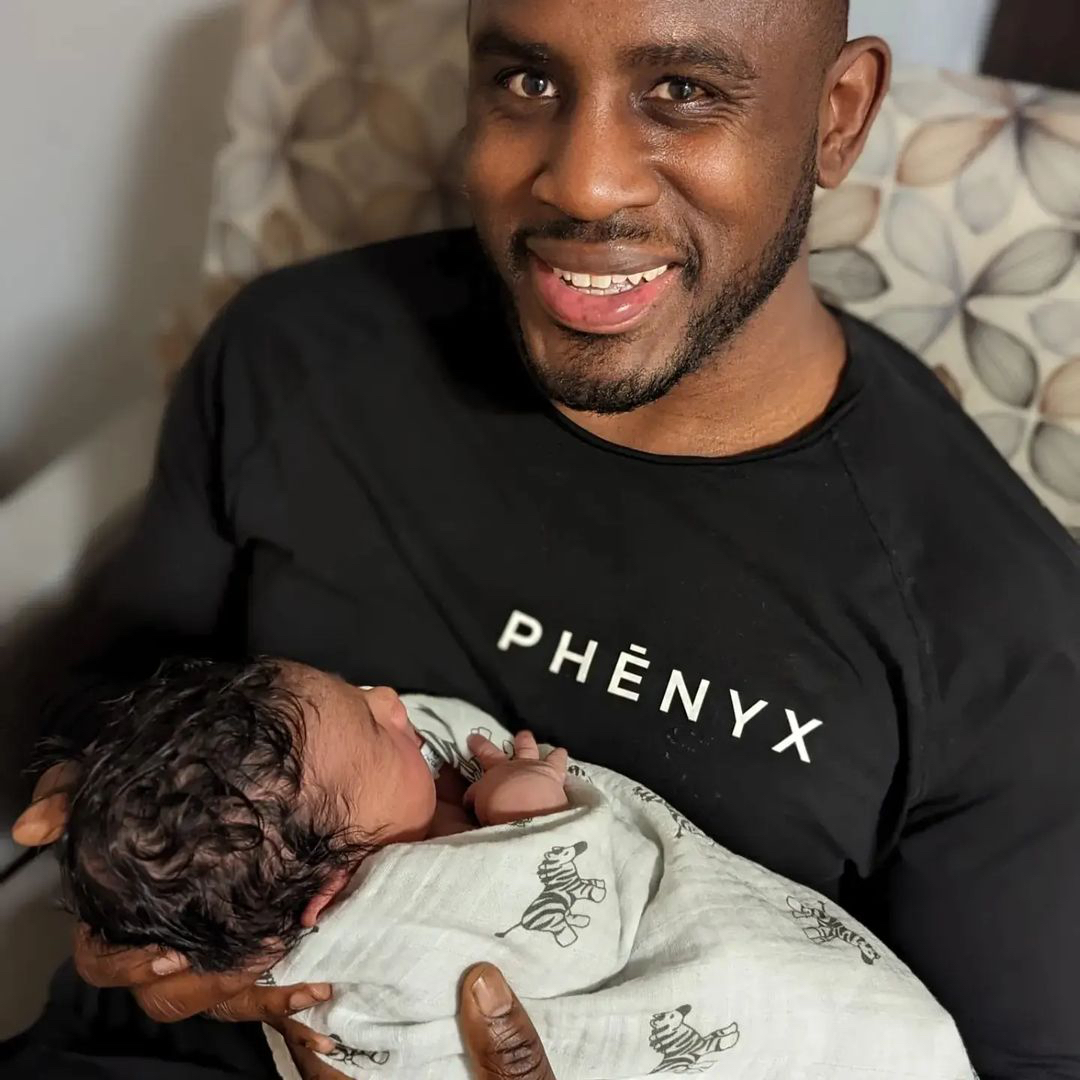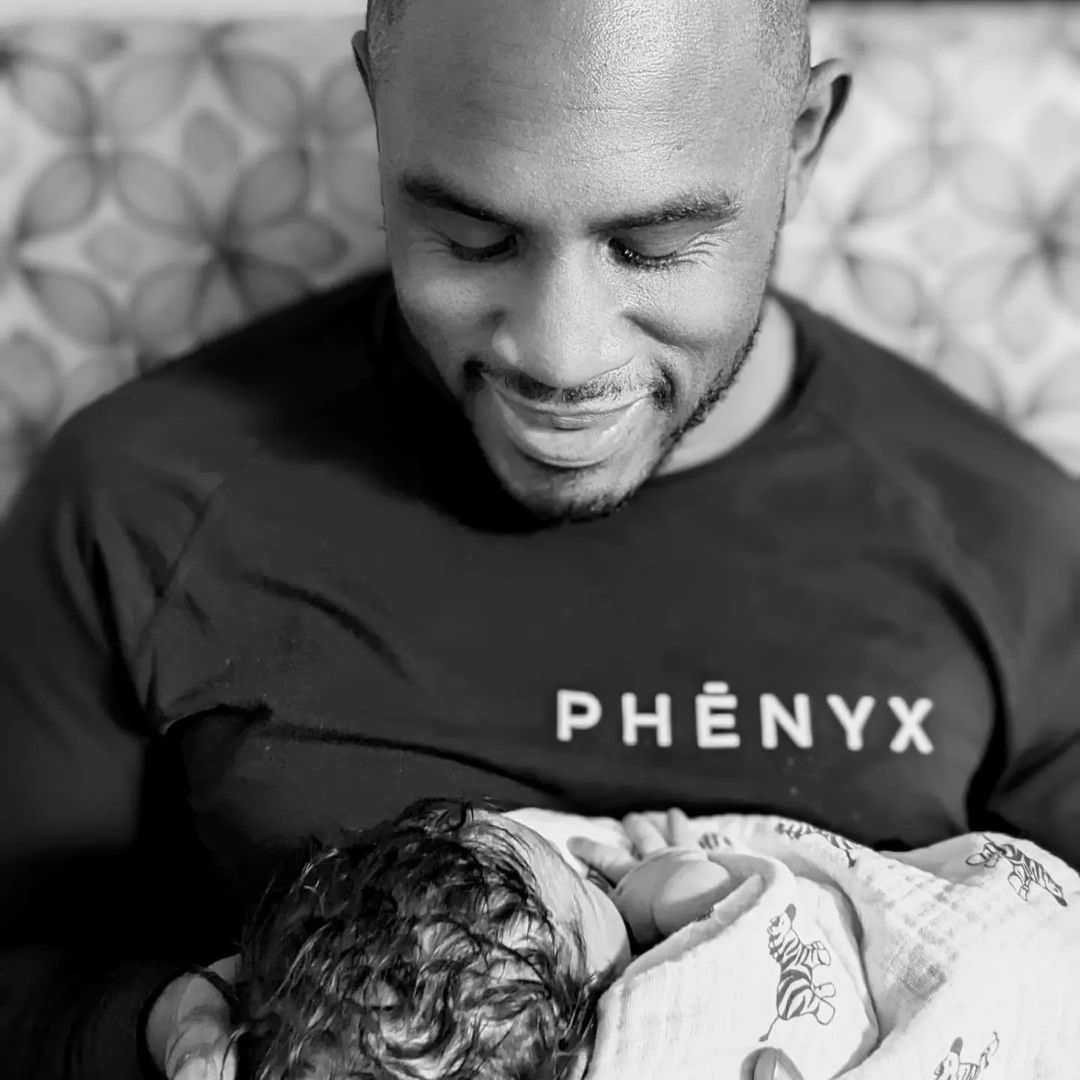A fun part of parenting is how my kid decided to enjoy the snow this way.
Three months before we found out my wife was pregnant, my mom died. If you have any sympathy or sorrows, they’re appreciated, but long-time readers of my content know that my mom and I had a mostly tenuous relationship, and we weren’t close.
Still, she was my mother, and despite many of her shortcomings and failures, I credit her with some of my good traits.
To this day, I can’t stand the idea of destroying a book, showing up late, and complaining. Those were direct instructions – the direct, positive influence of my mother.
As for survival mechanisms I developed to deal with her and the environment I grew up in, I have no problem standing up for myself, I’m excellent at dealing with conflict and de-escalating situations, and I’m good at cutting off toxic influences and not being manipulated.
When people ask if I was planning to have kids, I always say, “There are no accidents when you’ve been with someone for 10 years, but there are certainly unplanned events.”
I may not have had a good relationship with my mom, but I am who I am today because of her, for better or worse.
After my mom’s death, the mother of a friend reached out to check on me, and during our conversation, she gave me a piece of wisdom I imagine you can only gain after raising two children:
“Given where you are in your life, you’re never going to be any more ready.”
While there are obviously bad times and situations to have kids, after reaching a certain point in your life, there is no best time.
As Stephen King wrote in his book On Writing about having children, “We had two kids by the time we’d been married three years. They were neither planned nor unplanned; they came when they came, and we were glad to have them.”
One thing I didn’t expect was how my feelings towards my parents would manifest themselves unexpectedly as I became a parent myself.
At times, I’ve found myself angry thinking about how my father could just leave us because I miss my son when I’m not around him, and I get excited that he gets excited when I come home.
I get anxious thinking about how my mom used fear, violence, intimidation, and manipulation to try and guide us rather than taking the time to patiently teach, guide, and be an example.
My mother had an explosive temper, was physically and emotionally abusive, manipulative, resentful of me, had substance abuse issues, and lacked self-discipline and personal accountability.
I knew my father but I only saw him once or twice a year for a few hours a time.
He was a non-factor in my life. He wasn’t there as a protector, and he was only a state-sanctioned provider via child support. He occasionally went out of his way with gifts for Christmas or my birthday, but I lived in my city’s most dangerous, poorest public housing project with just my mom.
He moved across the state when I was a baby and, as far as I know, never remotely entertained the idea of moving back or having my sister and I live with him.
I never got a chance to have an adult relationship with him because when I was 18, he died from a sudden heart attack.
For most of my adult life, my opinion of my parents has oscillated between aggressive indifference and passive disdain, all under a canopy of confusion and disappointment.
But once I had my son and began going through the challenges of parenting a newborn, infant, and toddler—and experiencing the constant fatigue and feeling of never having enough time—I started to ask myself:
How would I behave without help, little resources, and two children to care for?
With two parents aroumd. the healthy one can carry the load if my wife or I get sick. If one of us needs to schedule an appointment or has a sudden rush of work, the other one will pick up the slack.
If one of us is up all night with our son, the other can step in during the day so the exhausted parent can catch up on sleep. We have two decent incomes to work with rather than one below the poverty line.
Speaking of sleepless nights, I wrote this essay during my son’s latest sleep regression, which had me sleeping upright in a recliner (and by “sleeping,” I mean staring at the ceiling while trying to keep him comfortable).
Any parent knows that regardless of how little sleep you get, your toddler will still wake up at dawn with the energy of a small nuclear reactor. This is where I need to thank Morning Would for sponsoring this newsletter.
Created by a firefighter who understands performing under sleep deprivation, it’s been crucial for maintaining my mental clarity through these challenging weeks.
The blend of nootropics, amino acids, and electrolytes has helped me stay present and engaged with my son during the day while still managing to write content and shoot videos. It’s not a replacement for sleep – nothing is – but it’s made a remarkable difference in my ability to function when sleep isn’t an option.
Use discount code “ED10” for 10% off your order.
Get Morning Would and wake up refreshed here!
The first part of forgiveness is understanding. I think one of the major reasons people push back against forgiveness is that they know this and fear that by understanding how a perpetrator could have committed the offense, they risk pardoning or excusing it or, even worse, condoning it. That is a reasonable fear, and I won’t debate anyone who feels that way.
I learned—more than 20 years after my father died—that when he was four, his mother died of pneumonia, and his father left to raise another family. My father also grew up in an era where men spent far less time with children than millennial fathers.
To him, moving across the state was fine, and the little bit of assistance he gave, he likely saw that as a VAST improvement over the situation he grew up in.
Most people are doing the best they can with what they know and the situations they’re in. Unfortunately, some people’s “best” is often an average person’s “mediocre.”
That doesn’t excuse their actions (or lack thereof), but it can help you to find a way to not let it strangle your emotions. However, I will say this:
If you don’t try to understand why someone behaved the way they did, you run the risk of recreating the circumstances that led to that behavior in the first place.
Sometimes I’ve found myself wishing my parents were around so I could yell at them because I know it didn’t have to be that way. Then I remember there’s a good chance they didn’t know it didn’t have to be that way.
I hold them to higher standards because doing anything else would not allow me to set a standard for my son. I also understand their behavior because doing anything else would risk me repeating it. Not outright in their actions—that will never happen—but in not adapting to the needs of my son and the challenges he may face.
If you ever find yourself wondering if you can forgive, remember that one day, the object of your enmity will no longer be around, and then your emotions will be held hostage by a ghost.
It won’t even be a ghost. It’ll be a poltergeist pulling the strings—something you can’t see or interact with but has power over you and your environment.
P.S. I’m giving a free talk at a virtual fatherhood summit on either Feb 1st or 2nd. I invite you all to join. It’s free, after all haha. Learn more at the button below.
The rest is up to you,

